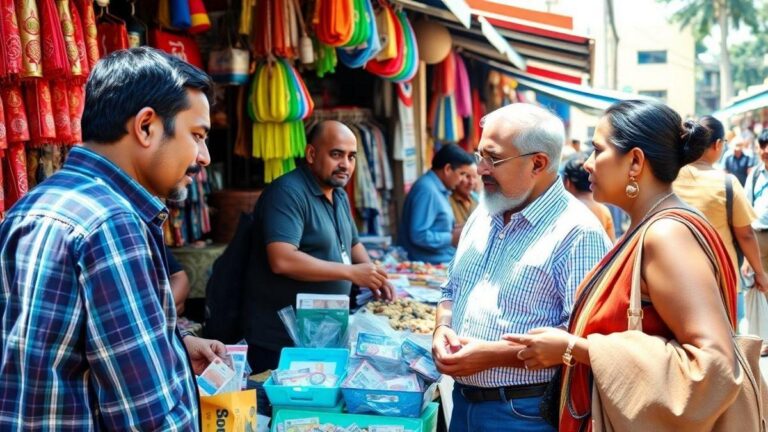Mandarin Chinese learning tools for business travel in Asia
Are you ready to explore Mandarin Chinese learning tools for business travel in Asia? In this article, you’ll discover the best apps and courses that can boost your skills in Mandarin. You’ll learn about essential phrases for meetings, tips to enhance your travel communication, and how to impress your Chinese colleagues. Let’s dive in and make your business travels smoother and more effective!
Main Points to Remember
- Use language apps for quick phrases.
- Learn basic greetings to make friends.
- Practice common business terms.
- Download translation tools for meetings.
- Watch Mandarin videos to hear real conversations.
Essential Mandarin Chinese Learning Apps for Business Travelers
Top Apps to Boost Your Mandarin Skills
When you’re on a business trip in Asia, knowing Mandarin can be a game-changer. Here are some top apps that can help you boost your Mandarin skills quickly:
| App Name | Key Features | Price |
|---|---|---|
| HelloChinese | Interactive lessons, voice recognition | Free with in-app purchases |
| Pleco | Dictionary, flashcards, OCR | Free with in-app purchases |
| Duolingo | Gamified learning, bite-sized lessons | Free with ads, premium option available |
| ChineseSkill | Fun quizzes, speaking practice | Free with in-app purchases |
| Skritter | Focus on writing, spaced repetition | Subscription-based |
These apps are perfect for squeezing in some learning during your busy travel schedule.
Features to Look for in Learning Apps
When picking a Mandarin learning app, look for features that will make your life easier while traveling. Here are some must-have features:
- Voice Recognition: Helps you practice pronunciation.
- Offline Access: Useful when you’re in areas with no internet.
- Interactive Lessons: Keeps your learning engaging.
- Cultural Insights: Understand the context behind phrases.
These features can make your learning experience smoother and more effective.
How Apps Enhance Your Travel Communication in Mandarin
Using Mandarin Chinese learning tools for business travel in Asia can significantly improve your communication. Imagine walking into a meeting and confidently greeting your colleagues in Mandarin. It helps break the ice and shows respect for the local culture.
Apps can also help you navigate through menus, ask for directions, or even handle business negotiations. For example, if you need to order food, an app can help you translate the menu, so you don’t end up with a dish you didn’t want!
Key Business Mandarin Vocabulary for Effective Communication
Must-Know Phrases for Meetings and Negotiations
When you step into a meeting with Chinese colleagues, having the right phrases up your sleeve can make a world of difference. Here are some must-know phrases that can help you navigate those important discussions:
| English Phrase | Mandarin Translation | Pinyin |
|---|---|---|
| Let’s start the meeting. | 让我们开始会议。 | Ràng wǒmen kāishǐ huìyì. |
| What are your thoughts? | 你有什么想法? | Nǐ yǒu shénme xiǎngfǎ? |
| Can we discuss this later? | 我们可以稍后讨论吗? | Wǒmen kěyǐ shāohòu tǎolùn ma? |
| I agree with you. | 我同意你的看法。 | Wǒ tóngyì nǐ de kànfǎ. |
| Thank you for your input. | 感谢你的意见。 | Gǎnxiè nǐ de yìjiàn. |
Using these phrases can help you feel more confident and connected during meetings. Plus, it shows your colleagues that you value their input!
Building Your Business Vocabulary with Flashcards
Flashcards are a fantastic tool for learning new vocabulary. You can create your own or find ready-made ones online. Here’s how to make the most of them:
- Choose Relevant Words: Pick words that are commonly used in business settings.
- Practice Daily: Set aside a few minutes each day to review your flashcards.
- Mix It Up: Include phrases, idioms, and even cultural notes to broaden your understanding.
Using flashcards not only helps you memorize vocabulary but also makes learning fun! You can even challenge a friend to see who remembers more words.
Using Vocabulary to Impress Your Chinese Colleagues
Imagine walking into a meeting and confidently dropping a few Mandarin phrases. Your colleagues will be impressed! Here’s how to make a lasting impression:
- Use Formal Greetings: Start with 您好 (Nín hǎo) to show respect.
- Compliment Their Culture: Saying something like 我喜欢中国文化 (Wǒ xǐhuān zhōngguó wénhuà) shows your interest.
- Express Gratitude: A simple 谢谢 (Xièxiè) goes a long way.
These small gestures can build rapport and show that you’re not just there for business, but also to connect on a personal level.
Mandarin Language Courses Tailored for Business Travel
Finding the Right Course for Your Needs
When you’re gearing up for a business trip to Asia, choosing the right Mandarin course can make all the difference. You want a program that fits your schedule, learning style, and specific goals. Here are a few tips to help you find the perfect fit:
- Assess Your Level: Are you a beginner or do you have some experience? Knowing where you stand will help you pick a course that meets your needs.
- Focus on Business Vocabulary: Look for courses that emphasize business-related terms and phrases. This will help you communicate effectively during meetings and negotiations.
- Check the Format: Do you prefer online classes or face-to-face interactions? Some courses offer flexibility that suits busy professionals like you.
Benefits of Structured Learning for Quick Results
Structured learning can be a game-changer for your Mandarin skills. Here’s why:
- Clear Objectives: A well-structured course has set goals that keep you on track. You’ll know exactly what you need to learn each week.
- Regular Practice: With a schedule, you’ll have consistent practice, which is key to retaining what you learn.
- Immediate Feedback: Experienced instructors can provide quick feedback, helping you correct mistakes and improve faster.
How Courses Prepare You for Real-Life Business Situations
Courses designed for business travel do more than teach you words; they prepare you for real-life situations. Here’s how:
| Situation | Course Focus |
|---|---|
| Meetings | Role-playing scenarios to practice discussions and negotiations. |
| Networking Events | Learning how to introduce yourself and engage in small talk. |
| Dining Etiquette | Understanding cultural norms and phrases for dining with clients. |
Imagine walking into a meeting and confidently greeting your colleagues in Mandarin. You’ll feel empowered knowing you can navigate conversations and build relationships. This is what tailored Mandarin courses can do for you!
Frequently Asked Questions
What are some great Mandarin Chinese learning tools for business travel in Asia?
You can use apps like Duolingo and Drops. These tools are fun and mobile! For more in-depth learning, check out Rosetta Stone or Pimsleur. They help build speaking skills fast!
Can I learn Mandarin Chinese on the go?
Yes! Many apps allow you to learn anywhere. Use your commute or breaks to practice. Just a few minutes a day can make a big difference!
Are there any phrasebooks for Mandarin Chinese focused on business travel?
Absolutely! Look for phrasebooks that focus on business terms and situations. They’re handy for meetings and negotiating. These can help you communicate better!
How can I practice Mandarin Chinese with native speakers?
Try language exchange apps like HelloTalk or Tandem. You can chat with native speakers and improve your skills. It’s a fun way to learn real-life language!
What should I focus on when learning Mandarin for business travel?
Focus on essential phrases, greetings, and business vocabulary. Practice listening and speaking. This will help you feel confident during your trip!

Hey, I’m Paula — traveler, language nerd, and the curious mind behind znewz.com. I’ve always believed that real connections happen through words, gestures, and shared experiences — not algorithms. That’s why I created this blog: to share travel stories from around the world and explore how language helps us connect in ways that AI still can’t. Whether I’m getting lost in a tiny town or striking up a chat in a language I barely know, I’m here to show that sometimes the best moments happen when tech takes a back seat.





